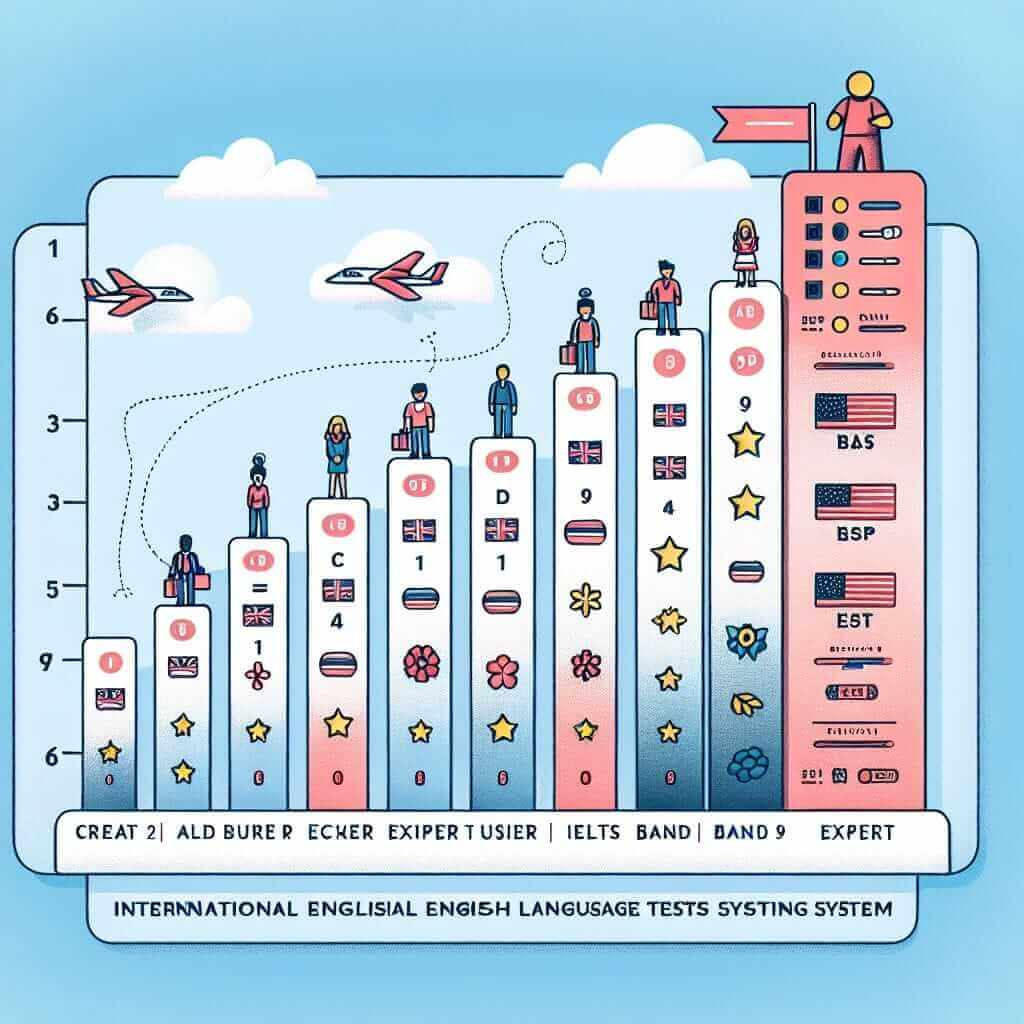As an IELTS instructor with over two decades of experience, I frequently encounter the question, “What is a good IELTS score?”. The truth is, there’s no one-size-fits-all answer. A “good” score depends entirely on your individual aspirations and the specific requirements of the institutions or organizations you’re targeting.
This comprehensive guide aims to demystify the IELTS scoring system, explore what constitutes a good score for different purposes, and provide you with the knowledge and strategies to achieve your desired band score.
Decoding the IELTS Band Score
The IELTS exam assesses your English language proficiency across four sections: Listening, Reading, Writing, and Speaking. Each section receives a band score from 1 (non-user) to 9 (expert user), with the overall band score being the average of the four individual scores.

What Constitutes a Good IELTS Score?
Academic IELTS
For university admissions, a good IELTS score generally ranges from 6.0 to 7.5. However, highly competitive programs, particularly in English-speaking countries like the UK, USA, Canada, and Australia, may demand scores of 7.0 or higher. Some universities might also require a minimum score in each section.
General Training IELTS
For immigration purposes or professional registration, a good IELTS score can vary greatly. For instance, Canada Express Entry requires a minimum score of 6.0 in each section for skilled worker immigration, while the UK requires a minimum score of 4.0 for a spouse visa.
Setting Realistic and Achievable Targets
It’s crucial to research the specific IELTS score requirements of the institutions or organizations you’re interested in. This will help you set realistic and achievable targets for your preparation.
Tips for Achieving a High IELTS Score
While the definition of a “good” score varies, certain strategies can help you maximize your score:
1. Familiarize Yourself with the Test Format
Understanding the structure and question types of each IELTS section is paramount. This will enable you to approach the test strategically and manage your time effectively.
2. Develop Strong Language Skills
Consistently practice all four aspects of the English language: reading, writing, listening, and speaking. Utilize a variety of resources such as English language textbooks, online articles, podcasts, and English conversation groups.
3. Master Test-Taking Techniques
Familiarize yourself with effective test-taking strategies specific to each IELTS section. This includes techniques like skimming and scanning for reading, note-taking for listening, and structuring your writing effectively.
4. Practice Regularly with Mock Tests
Taking regular mock tests simulates the actual test environment and helps you identify your strengths and weaknesses. Analyze your performance on these tests to refine your preparation strategies.
Example: Analyzing an IELTS Requirement
Imagine a university requires an overall band score of 7.0, with no individual band score below 6.5. This means you need to strive for a high level of proficiency across all language skills and aim for consistent performance across all sections.
Conclusion
Remember, achieving a good IELTS score is a journey, not a sprint. Consistent effort, targeted preparation, and a deep understanding of the test format and scoring system will ultimately guide you towards success. As an experienced IELTS instructor, I encourage you to embrace the challenge and approach your preparation with confidence and determination.